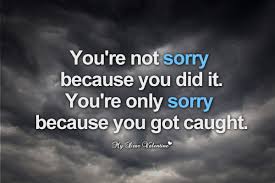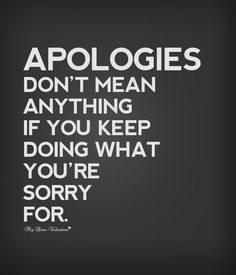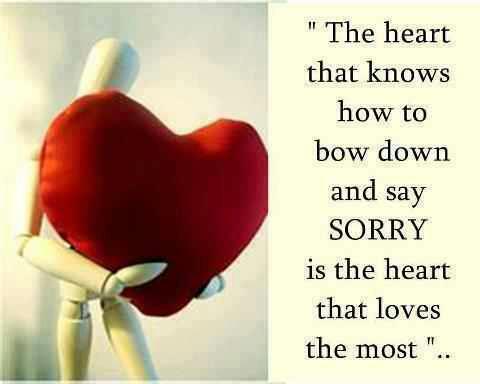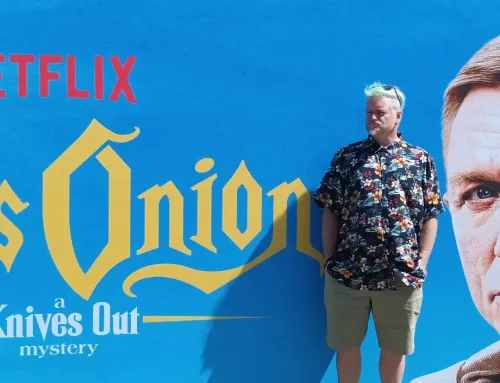“It takes a big man to cry, but it takes a bigger man to laugh at that man.” [Jack Handey]
Ah, i love me some Jack Handey, but as i continue to look at some different aspects that define the character of a person, i’m not quite sure that would be the best approach.
However, when we hear the word “Sorry!” coming out of our mouth, we should always be asking ourselves one key question:
i imagine, to some great extent, that uttering the phrase, “I’m sorry” is a natural response to being caught in some kind of wrongdoing or hurt-causing and we should always at some point, really take a moment to pause and think about how sorry we actually are.
There is a difference between saying the words, “I’m sorry!” and actually being sorry. Maybe a word like repentance is more helpful because it carries the idea of an about turn or a change in direction. Is my action following my wording going to back up my wording? This links to closely to the post i wrote on your actions needing to back up your words and the phrase, “Your actions speak so loudly that I cannot hear the words you speak.”
Trying to move away from false knee-jerk apologising would be a good start in this. Another quote i read on this went along the lines of encouraging you not to give an excuse when you apologise. If there is a reason for your action or if something was misunderstood and an explanation feels necessary then it might be more helpful and meaningful to separate the two. When you say the words, “I’m sorry, but…” it probably starts to feel about as believable as a good old, “I’m not racist, but…” [almost always followed by a racist statement of note!] An “I’m sorry but I really shouldn’t have to be sorry and here are the reasons why” kind of thing.
So maybe figuring out what a valid apology is. Maybe it is simply, “I’m sorry that you were hurt” or “I’m sorry that your expectation was not missed” or something that acknowledges the pain of the other person.
A QUICK RECAP
# Am i genuinely sorry? Am i seeing my fault in this? Am i owning whatever was my responsibility in this situation?
# Am i apologising in a way that doesn’t sound like it is coming off as an excuse which really negates the whole apology?
# Am i planning on changing my actions or doing something to make this thing better or giving recompensation where necessary?
[This last point a particular touchy point for most white South Africans i imagine – of course we are sorry for apartheid and everything that went with it, but we don’t particularly want that to cost us anything.]
KICKING THE LIE IN THE FACE
i remember reading this statement as a child, probably in one of those “Love is…” cartoon strips that were so popular then:
‘Love means never having to say you’re sorry.’
Urgh, what a load of raiSIN-infested bollocks! But really. It might sound like a good idea. And can be truth if you are pursuing the idea of saying alone not being helpful. But if the idea is that you never have to own your crap or change your direction or back pedal and make up for something jerky you did, then it really is an unfortunate greeting card and nothing more. Love is being committed to serving the other person and grabbing hold of responsibility for actions or words even when that is uncomfortable or painful for you, because you know that you were in the wrong. When this is coming from both parties, then strong relationships start to form.
And a whole lot more, I’m sure, but for now, just the opportunity to reflect on the idea that being a person of character means taking responsibility in the best and most helpful and healing of ways when, intentionally or not, you mess up and hurt someone else.
[To return to the beginning of this series on Character, click here]









[…] [For the next post in this series looking at Character, focusing on saying and being "Sorry!" click … […]